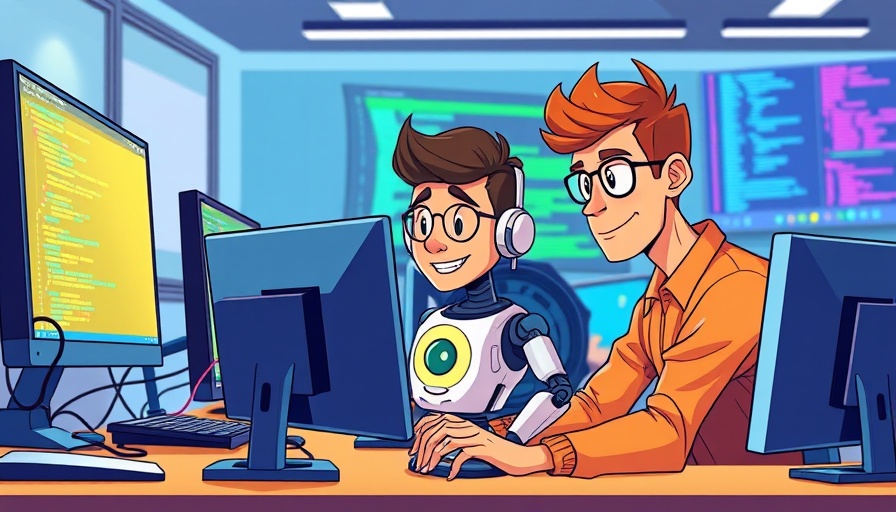
Understanding Current AI Utilizations in Software Development
The rise of artificial intelligence (AI) continues to spark curiosity among business owners—especially regarding its practical applications within software development. In the recent video titled What Are People Actually Using AI For?, a deep dive into the current utilizations of AI has revealed how developers utilize tools like Anthropic's Claude for coding tasks. Many users have reported that AI is not just a coding assistant but a dynamic agent that automates tasks, improves productivity, and changes the landscape of software development.
In What Are People Actually Using AI For?, the discussion dives into how various AI tools are transforming industries, especially in coding, prompting a deeper analysis on our end.
Automation as the Primary Use
According to findings from Anthropic's recent report, 79% of interactions with Claude Code were centered on automation, significantly higher than the 49% for general Claude AI interactions. This shift suggests that users are leaning towards using AI agents for executing tasks rather than merely augmenting their coding capabilities. For business owners, this is a crucial insight—leveraging AI for automation can yield substantial productivity gains while freeing up developers to tackle more complex, high-level tasks.
The Changing Landscape of Coding
The AI coding agents are also changing what kind of applications developers are focused on. Findings from the Anthropic report indicate that simple user-facing apps are becoming predominant. Languages like JavaScript and HTML are currently leading the pack for AI-assisted coding projects, highlighting a potential shift in the type of tasks that AI tools will ultimately take on first. Business owners should note that this trend could disrupt the market faster for those tasks that are more visible to consumers rather than backend processes.
Startups Lead the Charge
Interestingly, startups are driving the initial adoption of AI coding tools. In fact, 33% of Claude Code conversations stemmed from startups compared to only 13% from larger enterprises. For business owners, understanding the early adoption patterns can offer competitive advantages. Embracing AI earlier provides startups and smaller firms with access to innovative coding tools that may not yet be fully integrated into larger organizations due to their cautious approach.
Implications for Business Owners
The information suggests that business owners should consider investing in AI coding tools sooner rather than later. With the early adopters poised for success, those hesitating may risk falling behind. The tools not only promise increased efficiency but also the ability to foster innovation through automation.
The Diverse Range of AI Applications
Beyond coding, the recent report from the Harvard Business Review highlights that AI applications are expanding rapidly—from therapy and life organization to enhanced learning experiences. Businesses can draw parallels with their customers' needs. Whether it's personalized customer service or improved project management, there's a growing demand for AI applications in various business facets.
The Future is Bright for AI in Business
As businesses observe these patterns of AI usage, it’s imperative to anticipate future trends. Work that demands human involvement still benefits significantly from AI, especially in areas where feedback and refinement are required. Understanding that around 21% of coding discussions involve a human-in-the-loop highlights an approach to utilize AI effectively, ensuring that clients' direct feedback remains integral to the process.
In conclusion, the insights shared in What Are People Actually Using AI For? underscore the importance of early adoption of AI tools and their multifaceted use cases across industries. As AI continues to evolve, so do the opportunities for implementation within coding, customer service, and beyond. As such, whether you're a startup or an established business, there has never been a better time to start integrating AI into your operations.
START USING AI NOW to unlock new efficiencies and foster innovation in your business capabilities.
 Add Row
Add Row  Add
Add 




 Add Row
Add Row  Add
Add 

Write A Comment